8 start with F start with F
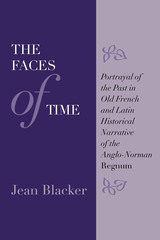
The twelfth century witnessed the sudden appearance and virtual disappearance of an important literary genre—the Old French verse chronicle. These poetic histories of the British kings, which today are treated as fiction, were written contemporaneously with Latin prose narratives, which are regarded as historical accounts. In this pathfinding study, however, Jean Blacker asserts that twelfth-century authors and readers viewed both genres as factual history.
Blacker examines four Old French verse chronicles—Gaimar's Estoire des Engleis (c. 1135), Wace's Roman de Brut (c. 1155) and Roman de Rou (c. 1160–1174), and Benoît de Sainte-Maure's Chronique des Ducs de Normandie (c. 1174–1180) and four Latin narratives—William of Malmesbury's Gesta Regum (c. 1118–1143) and Historia Novella (c. 1140–1143), Orderic Vitalis's Historia Ecclesiastica (c. 1118–1140), and Geoffrey of Monmouth's Historia Regum Britanniae (c. 1138). She compares their similarity in three areas—the authors' stated intentions, their methods of characterization and narrative development, and the possible influences of patronage and audience expectation on the presentation of characters and events.
This exploration reveals remarkable similarity among the texts, including their idealization of historical and even legendary figures, such as King Arthur. It opens fruitful lines of inquiry into the role these writers played in the creation of the Anglo-Norman regnum and suggests that the Old French verse chronicles filled political, psychic, and aesthetic needs unaddressed by Latin historical writing of the period.
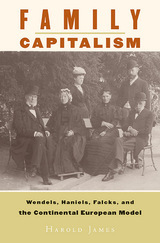
This history of three powerful family firms located in different European countries takes place over a period of more than two hundred years. The interplay and the changing social and legal arrangements of the families shaped the development of a European capitalism quite different from the Anglo-American variety.
Qualifying claims by Alfred Chandler and David Landes that family firms tend to be dysfunctional, Harold James shows how and why these steel and engineering firms were successful over long periods of time. Indeed, he sees the family enterprise as particularly conducive to managing risk during periods of upheaval and uncertainty when both states and markets are disturbed. He also identifies the key roles played by women executives during such times.
In Family Capitalism, James tells how "iron masters" of a classical industrial cast were succeeded by new generations who wanted to shift to information-age systems technologies, and how families and firms wrestled with social and economic changes that occasionally tore them apart. Finally, the author shows how the trajectories of the firms were influenced by political, military, economic, and social events and how these firms illuminate a European model of "relationship capitalism."
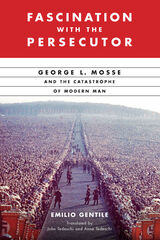
This translation makes Emilio Gentile’s groundbreaking study of Mosse’s life and work available to English language readers. A leading authority on fascism, totalitarianism, and Mosse’s legacy, Gentile draws on a wealth of published and unpublished material, including letters, interviews, lecture plans, and marginalia from Mosse’s personal library. Gentile details how the senior scholar eschewed polemics and employed rigorous academic standards to better understand fascism and the “catastrophe of the modern man”—how masculinity transformed into a destructive ideology. As long as wars are waged over political beliefs in popular culture, Mosse’s theories of totalitarianism will remain as relevant as ever.
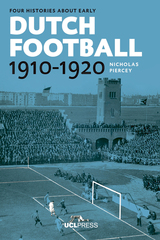
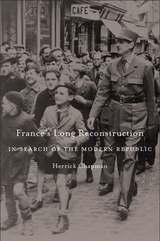
At the end of World War II, France’s greatest challenge was to repair a civil society torn asunder by Nazi occupation and total war. Recovery required the nation’s complete economic and social transformation. But just what form this “new France” should take remained the burning question at the heart of French political combat until the Algerian War ended, over a decade later. Herrick Chapman charts the course of France’s long reconstruction from 1944 to 1962, offering fresh insights into the ways the expansion of state power, intended to spearhead recovery, produced fierce controversies at home and unintended consequences abroad in France’s crumbling empire.
Abetted after Liberation by a new elite of technocratic experts, the burgeoning French state infiltrated areas of economic and social life traditionally free from government intervention. Politicians and intellectuals wrestled with how to reconcile state-directed modernization with the need to renew democratic participation and bolster civil society after years spent under the Nazi and Vichy yokes. But rather than resolving the tension, the conflict between top-down technocrats and grassroots democrats became institutionalized as a way of framing the problems facing Charles de Gaulle’s Fifth Republic.
Uniquely among European countries, France pursued domestic recovery while simultaneously fighting full-scale colonial wars. France’s Long Reconstruction shows how the Algerian War led to the further consolidation of state authority and cemented repressive immigration policies that now appear shortsighted and counterproductive.
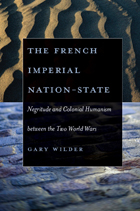
Gary Wilder develops a sophisticated account of the contradictory character of colonial government and examines the cultural nationalism of Negritude as a multifaceted movement rooted in an alternative black public sphere. He argues that interwar France must be understood as an imperial nation-state—an integrated sociopolitical system that linked a parliamentary republic to an administrative empire. An interdisciplinary study of colonial modernity combining French history, colonial studies, and social theory, The French Imperial Nation-State will compel readers to revise conventional assumptions about the distinctions between republicanism and racism, metropolitan and colonial societies, and national and transnational processes.
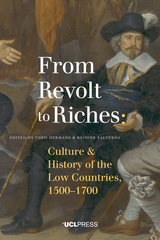
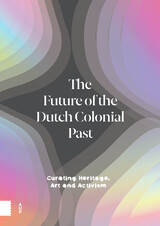
READERS
Browse our collection.
PUBLISHERS
See BiblioVault's publisher services.
STUDENT SERVICES
Files for college accessibility offices.
UChicago Accessibility Resources
home | accessibility | search | about | contact us
BiblioVault ® 2001 - 2024
The University of Chicago Press









